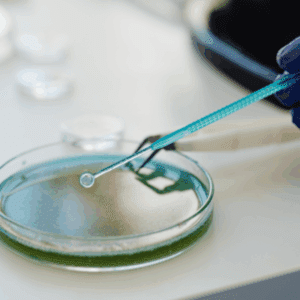What is the latest progress in myelodysplastic syndrome (MDS) therapy? Dr. Abhay Singh provides an overview of new developments in MDS care, including promising research on the TET2 mutation as well as therapies that target inflammation. Dr. Singh also explains how clinical trials are shaping the future of MDS treatment, offering practical tips on how patients can join these studies.
Dr. Abhay Singh is a physician specializing in acute and chronic leukemias at Cleveland Clinic and serves as Assistant Professor of Medicine at the Lerner College of Medicine of Case Western Reserve University. Learn more about Dr. Singh.
Related Resources
Transcript
Jamie Forward:
Dr. Singh, you’re a researcher in MDS, and you’re sort of on the front lines here of this. So, what are the latest advances in the care and treatment of MDS that patients should be aware of?
Dr. Abhay Singh:
Yes, I think one increased recognition that has happened in the recent years is that chronic low-grade inflammation plays a role in the onset and progression of myelodysplastic syndrome, especially for low-risk MDS.
So, there are lots and lots of treatments that are coming through that inhibit the inflammasome or the inflammation in the body to halt progression or even prevent disease altogether when used in earlier stages of the treatment. So, those are the things that really are exciting. There are different drugs that are being explored. I would highlight that which one thing that has not gained as much attention, but I hope in the next several years it does is that inflammation can be decreased by healthy living, good diet, and that can play a huge role as well.
So, I would love to see exercise or dietary interventions being incorporated into studies as we move forward. I say that because there’s a recent study earlier this year that we published where we saw that the drugs that are really popular at this time for weight loss and diabetes, the GLP-1 drugs, they have been associated with decreased risk of myelodysplastic syndromes. So, I see in some capacity those drugs being explored in this space. And there are other inflammation inhibitors that are being explored in MDS as well.
So, I think those are the few exciting research activities that are happening. Another thing I would like to highlight is TET2 mutation.
We spoke about IDH1 mutation, IDH2 mutation, which are rare. So, we’re looking at five, seven percent cases may have IDH mutations. SF3B1 mutations are common and there are drugs there.
But one of the very common mutations in MDS and its counterpart, chronic myelomonocytic leukemia, CMML, are TET2 mutations. And these can be found in 30 to 50 percent of the patients. So, very prevalent. And there is emerging evidence from the lab that this drug called eltrombopag (Promacta), which is an FDA-approved drug for thrombocytopenia and has been used sparingly in MDS as well.
It can be synthetically lethal to the TET2 mutated cells. And while it kills the TET2 mutated cells, it makes room for the normal hematopoietic cells to grow. So, thereby increasing, improving cytopenia, like improving anemia, neutropenia, leukopenia.
So, increasing white blood cells, red blood cells, and platelets so tri-lineage responses. So, that’s one exciting research that has come through Cleveland Clinic Research Center.
And it took three, four years to get that study started. And we have that TET2 focused protocol open here for our MDS, lower risk MDS patients. So, if there’s a TET2 mutation and none of the other treatments have worked, we have a protocol here that can be really beneficial, we hope, for our patients.
Jamie Forward:
Wow, that’s so interesting. And so, how can patients access these trials like this? Do you have advice of where to start?
Dr. Abhay Singh:
Yes, I think there’s a publicly available government portal called clinicaltrials.gov or .gov.
And then just typing MDS and selecting a location that’s closer to you or just selecting US, it gives you access to a lot of clinical trial options that are available. So, I think that’s one place to start. And then, sometimes a simple search as Google can identify advocacy groups that can also help you identify possible clinical trials as well.



